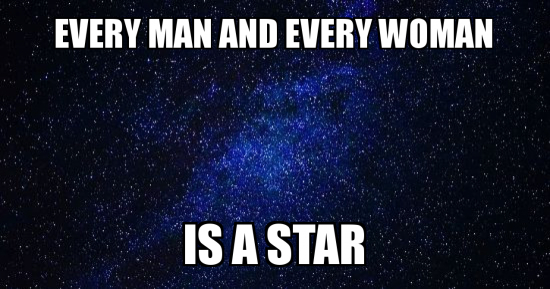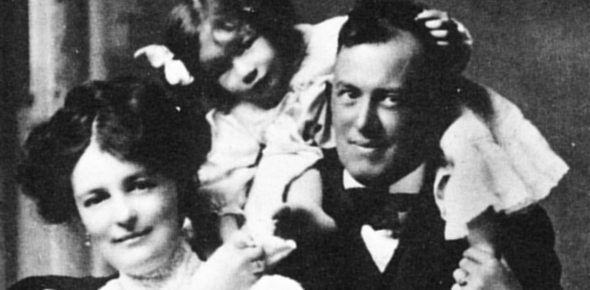Nuit speaks: “Every man and every woman is a star. ” It is the high holy days for Thelemites. Today we commemorate the reception of Chapter 1 of the Book of the Law by Aleister Crowley and Rose Kelly Crowley on April 8 1904.
Revelation has gone out of fashion. The words of the gods are no longer self-authorizing. Since the Enlightenment elevated human reason over divine inspiration, the messages of prophets have been met with skepticism. This is in general a good thing. We’re no longer ruled by religious authorities or by royalty who represent God on Earth. Political power is secular, and anyone can hold it, since any human being is capable of reason.
There was a window in time in Western culture where it was once again fashionable to receive messages from the beyond. This was the era of Spiritualism, when both women and men received messages from disincarnate entities. It was enormously comforting to hear from loved ones who had passed on.
Ceremonial magicians at the turn-of-the-century utilized the technology of receiving messages from non-corporate entities. In general they worked in couples; the women as mediums received the messages while the men acted as controls guiding the sessions. We see this with the Hermetic Brotherhood of Luxor, and with Moina and Samuel Liddell MacGregor Mathers.
This was also true for Aleister and Rose Kelly Crowley. It was Rose who initially heard the voice of Aiwass, the entity who dictated the Book of the Law to Aleister. In each of the three books Aiwass speaks for one of the three entities: Nuit, Hadit and Ra Hoor Khuit. At times the voice of Aiwass is also clear as he speaks directly to Aleister.
I understand the reception of the Book of the Law in more than a Spiritualist context. The Neo-Platonic religious-philosophers taught how to communicate directly with the divine, a system called theurgy. Aleister Crowley was a theurgist; Liber Astarte is subtitled “On uniting oneself to a Deity”. The Book of the Law is situated in the tradition that produced the Chaldean Oracles, transmissions from deities passed through time to inspire philosophers, mystics and magicians.
If we no longer automatically grant authority to revelation, if we are guided by reason instead of the words of the gods, how is the Book of the Law meaningful today? Each of us receives it in our own way. The book itself requires this – we are prohibited from interpreting it for anyone else. No one can tell me what the book means to me and I can’t tell you what it should mean to you. I can encourage you to read it for yourself to find out whether it speaks to you.
In Chapter I we hear the voice of Nuit. She calls “To me, to me!” and we come to her. The very first thing she tells us is: “Every man and every woman is a star.” I believe this, both because the words are divinely inspired, and because my reason affirms it. As a Platonist I understand that each soul descends from a star into incarnation and returns to the stars through the transforming experience of love. As a Thelemite I understand that each individual soul is sovereign. Each of us makes our own choices, guides our own path, charts our own course of realization. We all have a purpose and it is known only to us.
As a priestess I embody this message. I own it. The priestess speaks the words of Nuit from behind the veil, the most public theurgic act. It’s a moment frozen in time, a memory of the reception of the message by two newly married lovers in Cairo a hundred years ago. It’s a moment that is completely new whenever the message is received by a congregant for the very first time. “But to love me is better than all things…” Nuit calls us to remember that we are embodied, we are divine, and we are loved. Her path is love, and our salvation is love, for her, for each other, for ourselves.
To Nuit.



